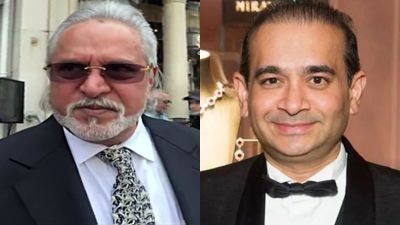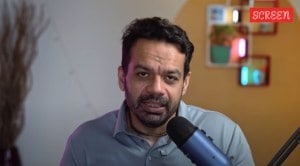Pak takes rewrite leaf from India
If Murli Manohar Joshi is feeling the need, he has shoulders to cry on. Across the border, and an ideological gulf. Just like the UPA Govern...

If Murli Manohar Joshi is feeling the need, he has shoulders to cry on. Across the border, and an ideological gulf. Just like the UPA Government in India is in the process of ‘‘detoxifying’’ NCERT history textbooks of saffronisation, the regime in Pakistan has engaged scholars to pore over its own books for Islamisation.
While the scope of change here is much broader, as also the challenges quite formidable, the Pakistani government—under international spotlight since 9/11—could take the plunge to take some of the heat off it.
Abdul H Nayyar is a professor of Physics at the Quaid-e-Azam University but for the past few years he has dedicated himself to this cause, which includes bringing out a controversial report citing examples of how the system has ensured an overarching influence of Islam in textbooks of Urdu, English and Social Studies.
The Pakistani government has instituted a committee to look into the findings of this report. However, any change—if it comes—won’t be easy. When the Punjab state board tried to introduce some of the changes, it ran into fierce objections from hardliners, followed by a hasty withdrawal of the books by the Federal Government.
Nayyar says the resistance has only strengthened his resolve, as he now embarks on uncovering a similar ‘‘subversion’’ in textbooks for Ethical Studies—a subject for non-Muslim students who don’t opt for Islamic studies and even pure sciences.
‘‘The problem is quite grave here. Unlike in India, the subversion has been happening for the past few decades. The textbooks here are guided by a curriculum document which says that nothing against the teachings of Islam should find its way into textbooks. Unless this is amended, there is no certainty that any positive change in textbooks will remain permanent,’’ Nayyar told The Indian Express.
In Pakistan, Nayyar says, the textbooks are revised every year, and for this purpose, the curriculum document is significant. ‘‘We have a Curriculum Wing which brings out this document. The mindset in this department needs to changed if this Islamisation process has to be stopped.’’
While the list of changes that Nayyar and his friends at the Sustainable Development Policy Institute—to which he is associated and under whose aegis he brought out the first report—wants is quite long, he feels there are few immediate changes that could be undertaken to give positive signals:
• Minority communities should not be compelled to study Islamic teachings
• No encouragement to ideas in the name of Islam which end up producing hate. For instance, the glorification of jehad
• No blatant distortion of history to further a religious ideology
• Review of all textbooks, followed by changes in the curriculum document
Nayyar is also worried about the glorification of military heroes in textbooks, though he understands that given the current dispensation, ‘‘this may be difficult to achieve now’’. Yet, he says, ‘‘A thought needs to be given to this because students have to read stories about all those persons who have been accorded the highest military honour.’’
Despite the government’s helplessness to bring about these changes, Nayyar says he is hopeful because there are many officials who appreciate his views.
Several international donor agencies which exercise influence over the Pakistan government have also apparently shown interest in his report and have been putting pressure for change. ‘‘The distortion is quite blatant. For instance, the history before the invasion of Sindh by Mohammed bin Qasim is covered in just two pages. There is complete denial of ancient history, which was taught to my generation in the form of a separate subject called History of India and Pakistan.’’
Photos





- 01
- 02
- 03
- 04
- 05

























